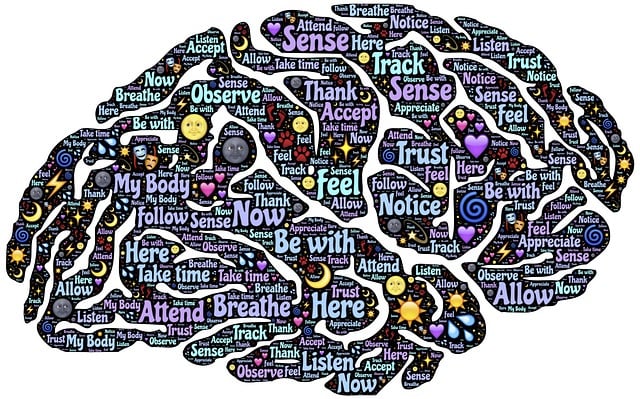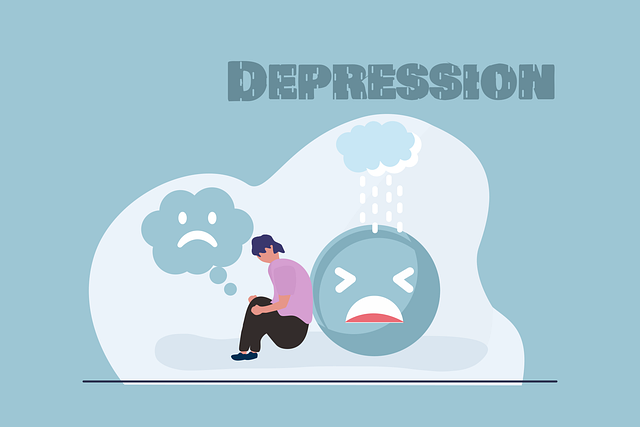Aurora Russian Speaking Therapy offers a unique, holistic approach to mood regulation, combining evidence-based techniques like CBT with self-care routines and cultural sensitivity. This method boosts emotional well-being, reduces mental illness stigma, and promotes empathy in communities. By addressing emotional needs effectively, it helps professionals maintain work-life balance, leading to long-term resilience. Lifestyle changes, cognitive strategies, mindfulness, and stress management workshops are integral parts of their approach, enabling individuals to manage moods, enhance mental resilience, and improve quality of life.
Mood regulation is a vital aspect of maintaining optimal well-being. This article explores various strategies to help individuals manage their emotional states effectively. We delve into the profound impact of mood on overall health and introduce innovative approaches like Aurora Russian Speaking Therapy, offering unique insights for those seeking improved mental balance. Additionally, we examine cognitive techniques, lifestyle adjustments, mindfulness practices, and relaxation strategies, providing a comprehensive guide to stabilizing moods and enhancing quality of life.
- Understanding Mood Regulation and Its Impact on Well-being
- The Role of Aurora Russian Speaking Therapy in Mood Management
- Cognitive Techniques for Effective Mood Control
- Lifestyle Adjustments for Stabilizing Moods
- Mindfulness and Relaxation Strategies to Calm the Mind
Understanding Mood Regulation and Its Impact on Well-being

Understanding mood regulation is pivotal to enhancing well-being and fostering a resilient mindset. It involves recognizing and managing emotional states, ensuring they align with one’s overall mental health and life goals. Moods, often influenced by internal factors like thoughts and memories, as well as external stimuli, can significantly impact our daily functioning and happiness. Effective mood regulation strategies empower individuals to navigate emotional challenges, promoting a sense of balance and tranquility.
Aurora Russian Speaking Therapy offers valuable tools for navigating these complexities. By integrating evidence-based techniques into their practice, this therapy supports clients in developing a robust self-care routine (Self-Care Routine Development for Better Mental Health). This, in turn, can mitigate the effects of mental illness stigma (Mental Illness Stigma Reduction Efforts) and contribute to widespread public awareness campaigns (Public Awareness Campaigns Development) that promote understanding and empathy within communities.
The Role of Aurora Russian Speaking Therapy in Mood Management

Aurora Russian Speaking Therapy offers a unique and effective approach to mood regulation, focusing on the emotional well-being promotion techniques inherent in its methodology. By combining elements of psychotherapy with cultural sensitivity, this therapy empowers individuals to manage their moods more effectively. The therapeutic environment fosters open communication, enhancing social skills training and providing a safe space for expression.
This specialized treatment is particularly beneficial for healthcare providers who may be at risk of burnout. Incorporating Aurora Russian Speaking Therapy into their self-care routines can serve as an excellent burnout prevention strategy. Through this therapy, professionals learn to process emotions more healthily, reducing stress levels and improving overall resilience. By addressing emotional needs, it contributes to maintaining a positive work-life balance, a crucial aspect in promoting the long-term well-being of healthcare providers.
Cognitive Techniques for Effective Mood Control

Cognitive techniques offer powerful tools for individuals seeking effective mood control. This approach focuses on challenging and transforming negative thought patterns, which in turn influences emotional states. Techniques like cognitive behavioral therapy (CBT), popularized by experts like Aurora Russian Speaking Therapy, teach individuals to identify and reframe distorted thinking, thereby improving their ability to manage moods. By learning to replace unhelpful thoughts with more realistic and balanced perspectives, people can enhance their mental wellness and reduce the intensity of negative emotions.
Empathy building strategies play a crucial role in this process. Encouraging individuals to understand and recognize their feelings, as well as those of others, fosters a deeper connection and promotes emotional intelligence. Stress management workshops organized by various institutions further complement these techniques by equipping people with practical tools to cope with demanding situations, thereby contributing to better mental health outcomes.
Lifestyle Adjustments for Stabilizing Moods

Maintaining a stable mood is a crucial aspect of overall well-being, and lifestyle adjustments play a significant role in achieving this balance. Simple yet powerful changes can have profound effects on one’s emotional state. For instance, regular exercise has been shown to boost mood and reduce symptoms of depression and anxiety. Incorporating physical activities like walking, yoga, or dancing into your routine can stimulate the release of endorphins, often referred to as “feel-good” hormones. Additionally, prioritizing a balanced diet and adequate sleep is essential; nutrient-rich foods support brain health, while consistent rest helps regulate hormones that influence mood.
Another effective strategy involves cultivating positive thinking patterns. Aurora Russian Speaking Therapy can be an excellent resource for individuals seeking to enhance their emotional well-being. Through specialized therapy sessions, individuals learn coping mechanisms tailored to their unique needs. Cultural competency training for healthcare providers is also vital, ensuring sensitive and effective support for diverse populations. By addressing underlying issues and adopting healthier habits, one can effectively navigate mood fluctuations and find lasting stability, contributing to overall mental resilience and improved quality of life, especially when coupled with anxiety relief techniques.
Mindfulness and Relaxation Strategies to Calm the Mind

In today’s fast-paced world, mindfulness and relaxation strategies have become essential tools for managing and regulating one’s mood. Techniques such as deep breathing exercises and meditation allow individuals to take a step back from their thoughts and gain a sense of calm. This is particularly beneficial in reducing stress and anxiety levels, which are often culprits behind emotional turmoil. By cultivating present-moment awareness, people can learn to observe their feelings without judgment, thereby fostering better mental resilience.
Aurora Russian Speaking Therapy offers valuable resources for those seeking to enhance their coping skills development. Through specialized healthcare provider cultural competency training, therapists equip individuals with tailored techniques to navigate and calm their minds. Public awareness campaigns on mindfulness and relaxation further contribute to a broader understanding of these practices, encouraging their integration into daily routines. Such initiatives not only promote individual well-being but also create a more supportive and informed community.
Mood regulation is a multifaceted process, and incorporating various strategies can significantly enhance well-being. From cognitive techniques to mindfulness practices, individuals now have an array of tools to manage their emotions effectively. The article has explored the power of understanding and addressing mood swings, highlighting specific approaches like Aurora Russian Speaking Therapy, which offers unique benefits for emotional stability. By adopting these strategies, folks can navigate life’s challenges with greater resilience, fostering a sense of balance and peace within.














